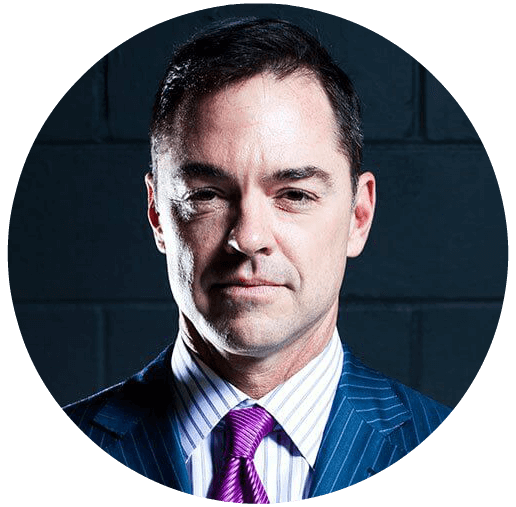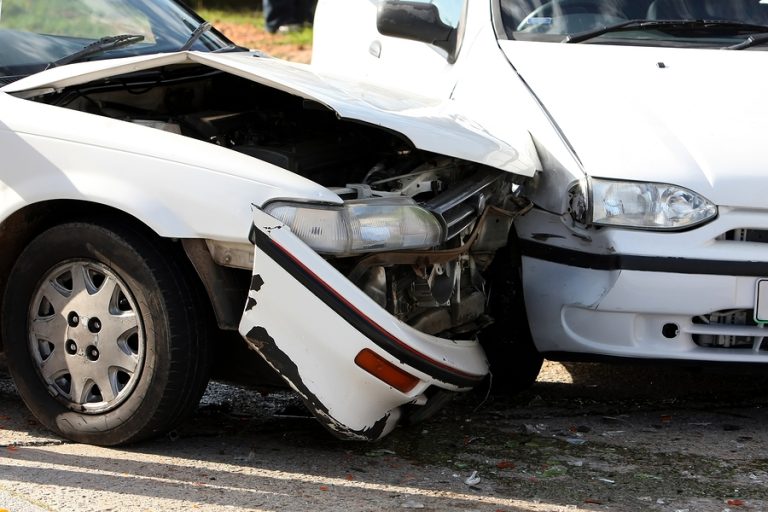 When you fall, there’s always a strong possibility that you will sustain an injury. Cushioning layers of skin, fat, and muscle might shield many of your internal organs from significant harm, but there’s little they can do to protect your head. When you fall to a hard surface such as concrete, your head becomes an easy target. Despite your efforts to protect yourself as you fall, traumatic brain injuries (also known as TBIs) often occur upon impact.
When you fall, there’s always a strong possibility that you will sustain an injury. Cushioning layers of skin, fat, and muscle might shield many of your internal organs from significant harm, but there’s little they can do to protect your head. When you fall to a hard surface such as concrete, your head becomes an easy target. Despite your efforts to protect yourself as you fall, traumatic brain injuries (also known as TBIs) often occur upon impact.
Brain injuries occur when you receive a blow to the head or a severe body jolt. When these triggering events happen during a fall, you might not notice a problem until hours or days later. That delay is not unusual. When an injury involves a broken bone, an open wound, a serious abrasion, or severe pain, it monopolizes your attention. By comparison, TBI symptoms sometimes seem vague or even ordinary.
Injured in an accident? Get a real trial lawyer. Get Gomez.
Conduct a Post-Fall Injury Assessment
Visible injuries easily motivate you to seek immediate medical attention. When you do, medical professionals naturally focus on the most obvious problems. Unless a brain injury includes blood or an open wound, you might simply go home after you fall and wait to feel better. You might not seek treatment unless your suffering becomes unbearable. When you go to an emergency department seeking treatment for your visible injuries, you might not even mention your TBI symptoms. If you don’t mention your TBI symptoms, the emergency staff might not ask at all.
The Centers for Disease Control and Prevention (CDC) cite falls as a significant cause of injury and death in all age groups. The agency’s annual Web-based Injury Statistics Query and Reporting System data for a recent year shows that over 8 millions people sustained non-fatal injuries due to unintentional falls. It’s the primary injury cause for people in all but the 15 to 24-year old age range. The Traumatic Brain Injury Model Systems Data Center lists falls as the number two cause of the roughly 18,000 brain injury cases they monitor.
Each person reacts differently when they slip or trip, and fall. If they sustain a TBI, their instinctive actions might jeopardize their diagnosis and recovery. For many people, an overwhelming sense of embarrassment governs their actions after a fall. When they should take a moment to scan their surroundings and assess their injuries, they often rise quickly, look around to make sure no one saw them fall, and walk away.
Pay Attention to Your Symptoms
Of course, it’s embarrassing to fall. A desire to run away is a natural response. Still, you should never walk away from an accident without evaluating your potential injuries. It’s easy to see or feel a fracture or notice an external wound. They’re usually painful, and they often prevent you from standing up or moving. You should also learn to recognize the symptoms that indicate a potential traumatic brain injury.
While symptoms of a TBI might begin to show up right away, some people do not experience symptoms for hours, days, or even months after the injury. This means that fall victims should seek care for any of the symptoms described below, even if their accident took place some time ago.
Symptoms to Look for After a Fall
The CDC describes the common symptoms of a TBI as falling into four categories:
- Thinking/remembering, including difficulty thinking clearly or concentrating, feeling slowed down, and difficulty remembering information.
- Physical, including headaches, dizziness, blurry vision, nausea and vomiting, exhaustion, sensitivity to light or noise, and balance problems.
- Emotional/mood, including difficulty managing emotions, and feelings of anxiety, sadness, and irritability.
- Sleep, which might include sleeping more or less than usual, or difficulty falling asleep.
For some TBI victims, these symptoms are relatively mild and resolve quickly. For other victims, they can be debilitating. The effects of a TBI can affect some victims for the rest of their lives. The Brain Injury Association describes TBI as a “complex injury that varies from person to person.” The severity of a person’s symptoms depend on what part of the brain was injured and the extent of the injury. But the brain is a complex organ and each injury is unique in the way it affects a patient, and each patient recovers in their own timeframe.
If you suspect you or a loved one may be experiencing TBI symptoms after a fall, contact your healthcare provider. Your doctor can help you develop a treatment and recovery plan specific to your injury.
When to Seek Immediate Medical Attention
While it is always important to seek medical care if you suspect you have a TBI, even if your symptoms are mild, a TBI can be fatal without prompt medical care.
If you or a loved one had a fall and experience any of the following symptoms, go to the nearest emergency room right away:
- The victim has a bad headache that does not go away.
- The victim is experiencing weakness, numbness, or an unusual lack of coordination.
- The victim has severe vomiting or nausea.
- The victim’s speech is slurred.
- The victim is extremely drowsy or you cannot wake them up from sleep.
- One of the victim’s pupils is noticeably larger than the other.
- The victim has a seizure.
- The victim cannot recognize people they know or remember where they are.
- The victim gets more and more confused, restless, or agitated.
- The victim is behaving strangely or in ways that are very unusual for them.
- The victim is unconscious or lost consciousness in the fall.
TBIs can be extremely serious. Don’t wait to get medical help if you experience any of these symptoms – your life could depend on it.
Missed TBI Diagnosis
If you sustain a brain injury during a fall, pay attention to your symptoms. Emergency personnel often focus on visible wounds. Unless you explain your symptoms or you’re unconscious when you arrive at the ER, medical professionals won’t always consider that you may have sustained a head injury. They might not realize that a jolt you endured when you fell likely caused a TBI. It’s up to you to pay attention to your symptoms and convey your concerns.
Missed TBI diagnoses are often a problem for older people. During a recent year, more than three million patients aged 65 and older sought emergency treatment for falls. Many sustained fractures or head injuries. Despite timely treatment for these seniors’ injuries, medical professionals sometimes overlooked or simply failed to consider checking for a TBI. It’s such a problem for older patients, Congress addressed it in the recently passed Supporting Older Americans Act of 2020.
The updated law implements new TBI protocols for older adults who have experienced a fall. Section 110 of the law contains a provision that mandates “screenings, coordination of treatment, and other services for fall-related injuries, including traumatic brain injury.”
If you suspect an older adult in your life may be experiencing the effects of a TBI, be sure to advocate for them with their care provider.
When You Fall, Preserve the Evidence
If you’re alone when you fall, you are likely the only person who can effectively look out for your interests immediately afterward. If you sustain a TBI, seek medical attention for any symptoms that arise. Before you walk away or while you’re waiting for medical help to arrive, you should also try to figure out what happened.
Falls occur for many reasons. They often involve poor maintenance, improper security, or other owner acts of negligence.
This can include:
- Poorly maintained staircases, including inadequate or a total lack of handrails.
- Deteriorating or damaged flooring.
- Inadequate or a complete lack of lighting.
- Unsafe elevators.
- Improperly placed floor mats.
- A build-up of ice or snow.
- Unsafe store displays.
- Crumbling sidewalks or driveways.
Before you leave a property, try to identify what caused your fall and, if you are able, take steps to document the evidence. Simply taking a few photos is a great idea.
When you are documenting, keep the following things in mind:
- Pay attention to how you landed. Notice what parts of your body hit what parts of the surface on which you fell.
- Take photos of the immediate area surrounding your fall.
- Take photos of your shoes, paying particular attention to the bottoms.
- Photograph any defects in steps, walkways, pavement, or anything that likely contributed to your fall.
- Look for witnesses and ask for their contact information.
- If possible, find out the property owner’s name and make a report or call one in later.
- Keep a journal to help document your injury symptoms and recovery. Include entries about your injuries, treatment, and recovery challenges.
If you decide to pursue an injury claim against a property owner, your mini-investigation will help you prove your case. It’s important to document as much as you can right after the accident. When someone is injured on a property, owners often take immediate steps to correct a maintenance issue or hazard. If you or a legal representative return to investigate at a later time, you may miss out on documenting the evidence that would prove your case.
Depending on your injuries, it may not be possible for you to take these steps. Don’t worry; your safety and recovery come first, and your attorney will have other ways to obtain important evidence if you are too injured to do so.
Do You Need an Attorney if You Have a Brain Injury?
If you are struggling to recover from a traumatic brain injury, you should consult a brain injury lawyer right away—especially if someone else caused your injury. Brain injuries are often complex injuries with long-term consequences. It’s important to work with a legal professional who understands the liability and damage issues involved in a brain injury case. Brain injury attorneys can take up negotiations with the responsible parties and their attorneys. They protect their clients’ legal interests and work to recover the damages their clients need following an injury.

If you have suffered a TBI because of someone else’s careless actions or inaction, you may pursue some or all of the following types of compensation:
- Medical expenses, including reimbursement for the costs of emergency room treatment and transport, surgery, doctor’s appointments, rehabilitative therapy, and more.
- Lost income, if the TBI requires that you stay home from work during recovery, or makes it so that you cannot work at all.
- Other related expenses, such as child care or other personal care that you can no longer take care of without help as a result of the injury.
- Pain and suffering, which is compensation for the emotional impacts the TBI has had on you and your family.
Each case is unique, and the compensation available in a specific case depends on a wide range of factors related to the circumstances surrounding the accident. This includes the complex matter of proving that the other party was legally “liable” (responsible) for causing your fall. An experienced brain injury attorney can help you figure out whether you may be eligible for compensation, and discuss the options that may be available to you to seek it.
Injured in an accident? Get a real trial lawyer. Get Gomez.
Contact an Attorney Today
When you consult a brain injury lawyer, the initial meeting is complimentary. You don’t have to commit to making a claim or filing a lawsuit. You simply have the opportunity to tell the attorney about your injuries and ask your most pressing questions. The attorney talks to you about your legal options and explains any time constraints for filing a claim or lawsuit. You then get to decide how you wish to proceed.
If you suffered a TBI in a fall, you may be facing a long-term recovery and large medical bills. This can be overwhelming, and an experienced attorney can help. Don’t wait to seek help – the law provides a time limit for seeking damages from a property owner or other at-fault party after an accident. Contact a trusted TBI lawyer today for a free case consultation about your legal rights.







